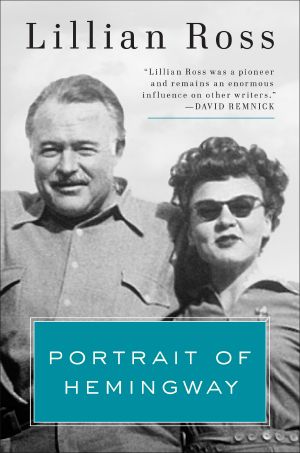Portrait of Hemingway

- Authors
- Ross, Lillian
- Publisher
- Simon & Schuster
- Tags
- biography , classics
- ISBN
- 9781501126031
- Date
- 1950-01-01T00:00:00+00:00
- Size
- 1.09 MB
- Lang
- en
New Yorker writer Lillian Ross made her reputation as a journalist on this 1950 profile of Ernest Hemingway. And she also made a lifelong friend of Hemingway on the head of it. Yet, strangely enough, despite her tremendous admiration for her subject--"the greatest American novelist and short-story writer of our day," she declares in the opening sentence--the piece was widely viewed as an assault. Some readers were "almost deliriously censorious," Ross writes of the book's original publication, "about the way Hemingway talked and the way he enjoyed himself and the way he was openly vulnerable."
Ross essentially made herself a fly on the wall during two days that Hemingway and his fourth wife, Mary, spent in New York City while en route to Venice, and she wrote down everything the great man said and did. Hemingway hit the airport bar within minutes of landing, proceeded (several shots of bourbon later) to his suite at the Sherry-Netherland, summoned his old friend Marlene Dietrich for caviar, champagne, and war stories, bought a winter coat at Abercrombie at his wife's insistence, looked at pictures in the Metropolitan Museum of Art while pulling on a flask, met with his publisher Charles Scribner, and ran into friends. And he talked ceaselessly, sometimes brilliantly, sometimes foolishly in a kind of pseudo-Native American dialect (dropping articles) about life and art, baseball and women, hunting and horseracing, writing and competing ("I beat Mr. Turgenev," he declares at one point. "Then I trained hard and I beat Mr. de Maupassant").
Whatever one feels about Hemingway, one has to admire Ross's extraordinary success in bringing the man to life in this slim volume. Her Portrait of Hemingway is worth any hundreds of chapters of standard, fact-filled biography in conveying a tangible, immediate sense of what "Papa" was really like. --David Laskin